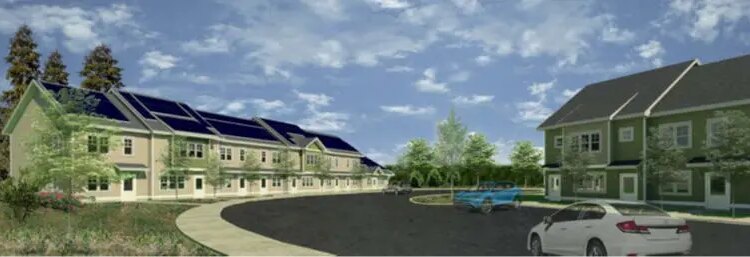Way Finders has received $5.2 million in funding from MassHousing to build new affordable rental housing in Agawam, Massachusetts. The project will consist of 62 units, with 20 one-bedroom units, 29 two-bedroom units, and 13 three-bedroom units. The architectural and development aspects of the project will be handled by local firms Dietz & Company Architects and Allegrone Construction, ensuring a well-crafted and welcoming living environment.
To bring this project to life, Way Finders will receive $3.7 million as a permanent loan from MassHousing, along with a $1 million Workforce Housing Initiative loan and an additional $500,000 in Capital Magnet Fund financing.
Read also: Crosswinds Apartment Homes to be Developed in San Antonio
The project has received funding support from various sources. The Massachusetts Executive Office of Housing and Livable Communities (EOHLC) has allocated $17 million in Low-Income Housing Tax Credits, supplemented with $3.4 million in direct support. The Affordable Housing Trust Fund, managed by MassHousing on behalf of EOHLC, will provide an additional $1 million, and the Massachusetts Department of Mental Health will contribute $749,000. The Massachusetts Housing Investment Corporation (MHIC) will act as the tax credit syndicator and investor, while TD Bank will offer essential construction finance.
Completion Dates for the New Affordable Rental Housing Project in Agawam
The new affordable rental housing project in Agawam, named “Rosewood Way,” is expected to be completed in August 2024. This project represents a significant milestone in MassHousing’s efforts to make affordable housing more accessible and provide comfortable and sustainable homes for families across the state.
Rosewood Way will be accessible to families from various income backgrounds. Eight units will be supported by a federal Section 8 subsidy for households earning up to 30% of the Area Median Income (AMI). An additional 12 units will be supported by the Massachusetts Rental Voucher Program for households earning up to 50% of AMI. A substantial portion of 27 units will be reserved for households earning up to 60% of AMI, while 10 units will be allocated for workforce housing, serving households with incomes up to 80% of AMI. Additionally, five units will be unrestricted, promoting diversity and inclusion within the community.



